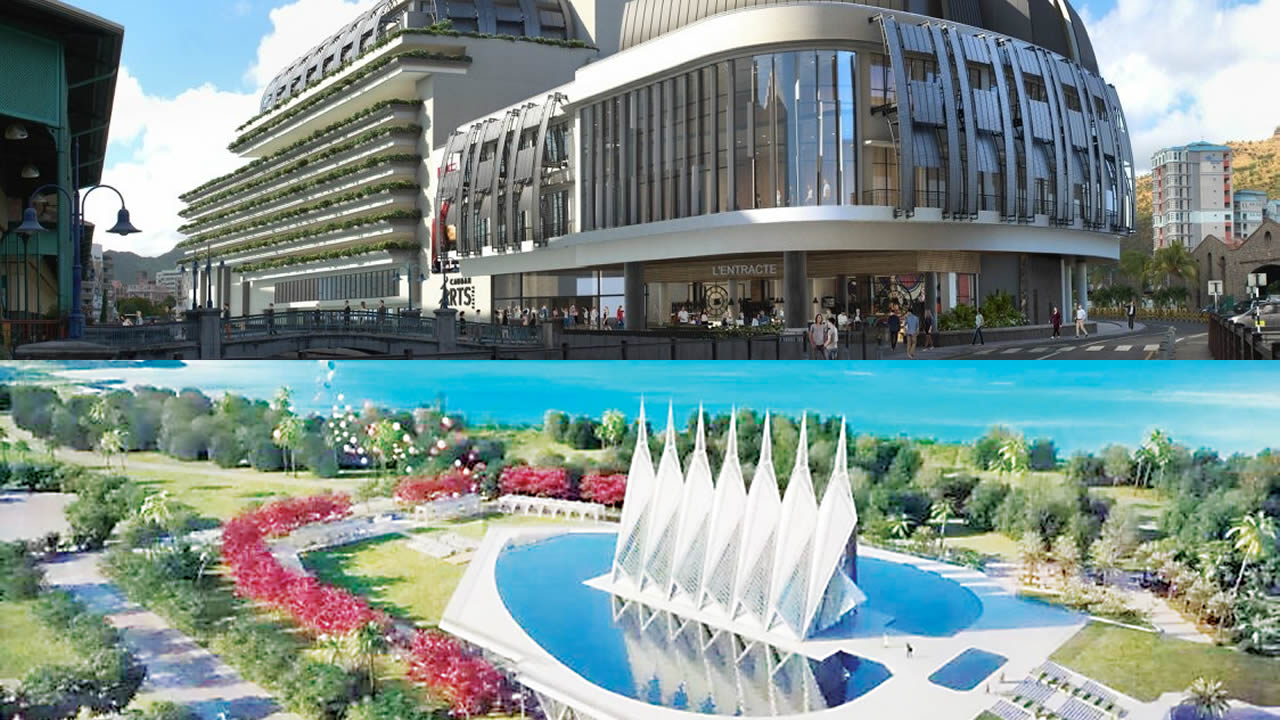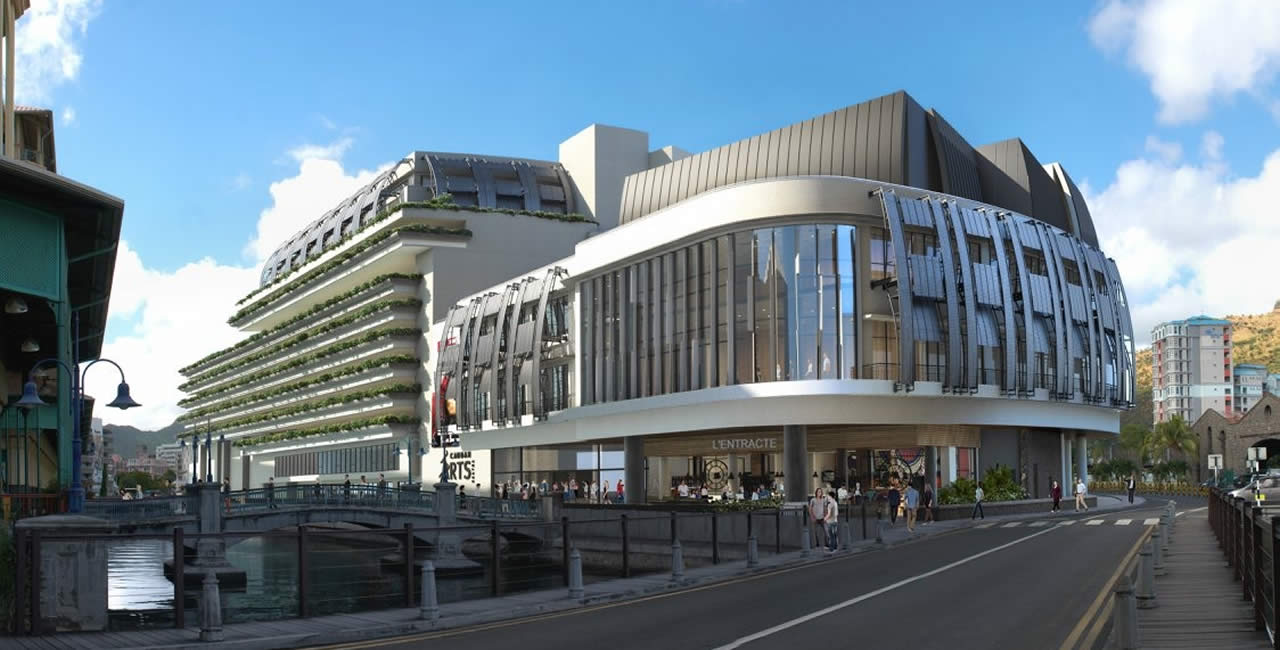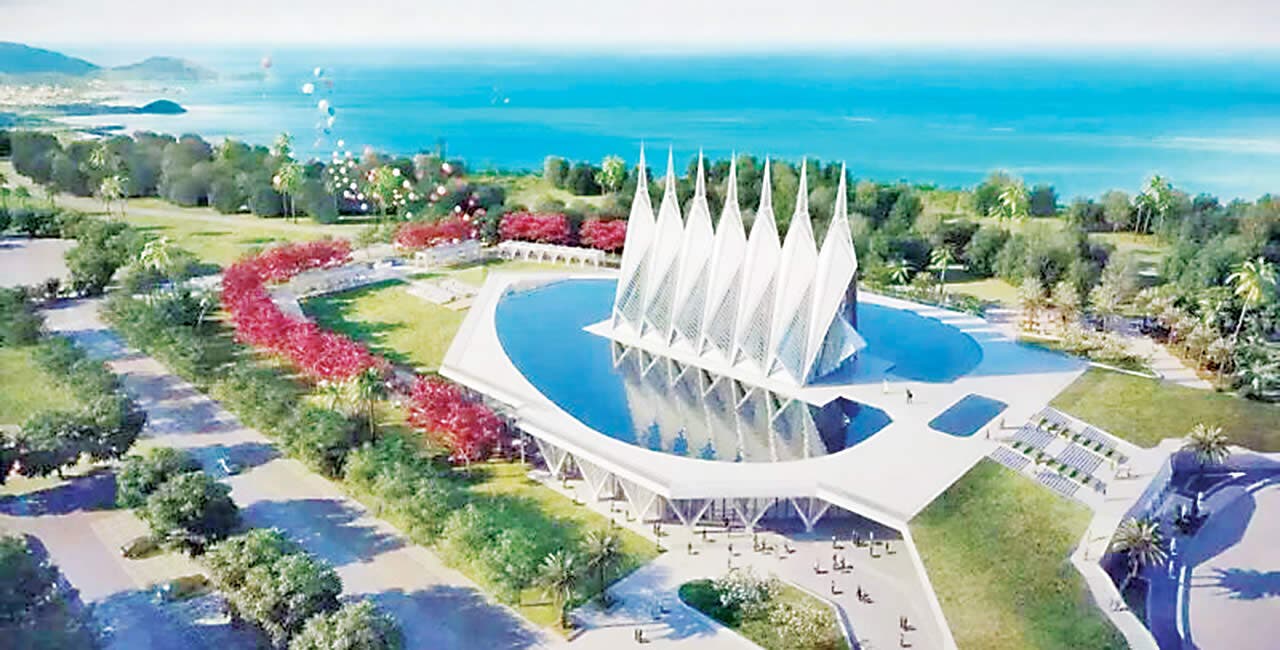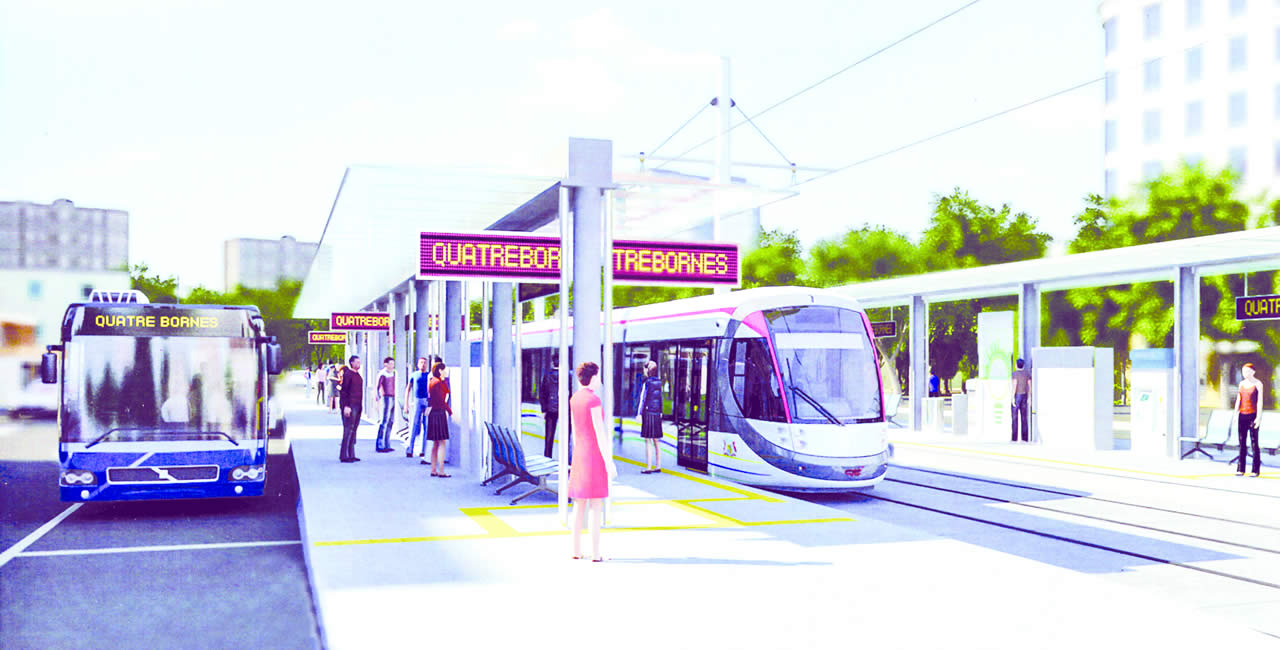
To achieve its goals in line with the Vision 2030, the Government has approved an investment of Rs 66.9 billion in infrastructure and Rs 47.3 billion in social infrastructure over the next three years. That is a total of Rs 114.2 billion. In fact in 2018, the Mauritian government, through the Economic Development Board and the authorities concerned, validated a series of projects by local and international private investors. Some have already reached an advanced stage, like JinFei, and others are expected to come out of the ground next year. Indeed for 2019, the Government plans to continue on modernising the country. Many of the infrastructural projects are likely to generate more than 10,000 direct jobs for an investment exceeding Rs 54 billion. More than half of the investments will be dedicated to Smart Cities, as well as real estate and hotel projects.
Public infrastructure: A total Rs 26.6 billion will be invested in this sector. For the fiscal year 2018-19, Rs 13.2 billion will be disbursed. Major projects such as the Phoenix flyovers and the Coromandel-Soreze bridge have already been launched and will be completed in September 2020. The cost of both projects is Rs 4.5 billion. Phase I of the Metro Express project will be completed by September 2019. This project represents almost 75% of the investments in the transportation and road development sector. La Vigie Road - La Brasserie and the Ebène air bridge are also part of the vast project of road developments across the country.
Riche Terre Business and Industrial Park
The Riche-Terre region has been identified, as part of the Port Development Strategy, as a port aid area suitable for port logistics and light industries. In 2015, following discussions, the Government, after allocating 175 acres to Mauritius JinFei for a mixed development project, recovered 325 acres of land at Riche Terre. The availability of land at Riche Terre and its proximity to the port have already broadened the demand for land rental by local and foreign manufacturing and logistics companies. During the 2018-2020 period, some 40 projects, including manufacturing, logistics and warehousing activities, will be implemented on approximately 215 acres in Riche Terre. These projects will require investments of Rs 5.7 billion and will create some 2,000 direct jobs. Construction has already started in November 2018.
JinFei project
Mauritius JinFei has engaged in several development projects on 175 acres of land at Riche Terre. Eden Garden Culture and Entertainment Square, as well as conference facilities, have been completed. The development of a five-star hotel-apartment complex including restaurants, function rooms, wellness centres and cinemas, among other facilities, are scheduled to start in the first quarter of 2019. In the Smart City, more projects, logistics and warehousing, are in the process of being developed. Rs 650 million will be invested and some 300 jobs will be created.

Barachois Villas Company Ltd
Barachois Villas Company Limited is currently developing a project comprising 103 villas as well as commercial and leisure facilities in Tamarin. The project, which requires an investment of Rs 2.4 billion, will create around 600 jobs. The first phase must be completed in October 2019.
Le Caudan and the Port Louis Waterfront
Caudan Development is building a multi-storey complex comprising of office space, an arts centre and parking facilities in Caudan. This project required an investment of Rs 900 million. As for the renovation of the Port Louis Waterfront, it is part of the Master Plan, which aims at developing commercial structures, leisure and hospitality. The first phase of the project, which includes the rehabilitation of the ‘Coaster Shed’, the esplanade and the underpass, is underway. Coaster Shed will house shops, a food court, movie theaters and office space. The cost of the project is estimated at Rs 322 million.
Moka Smart City
The PWC office building at Moka Smart City is under completion. Infrastructure works and the development of 61 homes are underway, while 34 commercial and residential projects, requiring investments of Rs 500 million, will start in the first quarter of 2019. The Economic Development Board (EDB) approved the development of 15 other mixed development projects within the Moka Smart City, with investments of Rs 3 billion.
UNICITI (Médine Ltd)
In 2018, UNICITI (Médine Ltd) completed the construction of its commercial park, sports complex, educational institution and office building. Projects under development are primary and secondary schools, infrastructure works for the first phase, and an underpass. In total, an estimated 1.4 billion rupees were invested in 2018, and approximately 1,200 jobs were created. For 2019, planned projects include a private clinic, a residential project, an arts centre and a green park.
Les Salines Peninsula
On the basis of cost sharing, the construction of a 3.3 km long road, including the necessary infrastructure for utilities, was completed at a cost of Rs 485 million at Les Salines Peninsula. Although the Master Plan - Les Salines Master Plan - was already approved by the Government in 2004, no project had been implemented yet because the site had neither road infrastructure nor basic utilities (water and electricity). The site, now scheduled to service eight hotel projects totaling investments in the order of Rs 25 billion, must come into being during the period 2019-2022. The construction of three of them - The Salines Golf and Resort Ltd. (600 rooms), Horizon Sweets Company (60 rooms) and Hyvec Partners Ltd (50 rooms) - is scheduled to start in the first quarter of 2019. In total, some 2,500 jobs will be created on a four-year period.

Mon Trésor Smart City
The Mon Trésor Smart City has begun building its ‘business portal’ at a cost of one billion rupees. Phase A of the project has been completed and Phase B will start in the first quarter of 2019. Residential development will begin at the same time.
Vetilang Ltd
Vetilang Ltd is setting up an oil refinery in Chamarel to extract perfume oil from specialized plantations. The cultivation of five to six varieties of fragrant plants has already begun. In addition to an extraction and distillation unit, the project includes a shop where the various essential oils produced will be displayed and sold. The total investment will be in the order of Rs 138 million. At least 65 permanent jobs will be created in 2019.
Projects of Landscope (Mauritius) Ltd
As announced in the 2016-2017 Budget, all companies managing the public real estate sector, including SPDC, BPML, SLDC, Belle Mare Tourist Village Ltd and Les Pailles Conference Center Ltd, will be merged into one institution. The amalgamation of these companies was successfully completed on December 1, 2016, and resulted in the creation of Landscope (Mauritius) Ltd. Through this process, loss-making companies have been transformed into profitable and incomplete organizations. The various projects of Landscopes Ltd are:
- Riche Terre Business and Industrial Park namely the development of a Logistics Park
- Renovation of the Port Louis Waterfront, which is one of the flagship projects that kick-started the regeneration and transformation of Port Louis into a dynamic and attractive city.
- Construction of ‘Les Salines Road’ - Lanscope took charge of the project to build a 3.3 km long road, which was completed on October 15th, 2018, for a total cost of Rs 485 million.
- Construction of the New Supreme Court - Landscope acts as executing agent for the New Supreme Court's construction project at Edith Cavell Street. Work is progressing fast. The construction will be completed in November 2019.
- Smart City of Côte-d'Or - Landscope has prepared a Master Plan for the development of some 2,000 acres of land in Côte d'Or with a view to make it a Smart City. The first phase of the project started with the construction of an ultra-modern sports complex that will host Les Jeux des Iles de l’océan Indien in 2019.
Metro Express: On the rails in 2019
September 2019 will be marked by the beginning of a new era in the history of transport in Mauritius. Indeed, that Metro Express will make its first trip between Port Louis and Rose Hill in that month. The Metro Express work and construction is the biggest project ever initiated in Mauritius.
The first phase (connecting Port Louis to Rose-Hill) will be completed in September 2019. And the second phase in June 2021. The Metro Express is part of the vast plan of road congestion, which also includes the construction of the bridge between Coromandel and Soreze and that of a flyover at Jumbo Phoenix. These projects started in 2018, at the same time as the construction of the new Victoria Station. The elderly, disabled and students will travel for free, as is the case in public transport and the price of the Metro ticket will be aligned with the current price of public transport. A total of 19 stations - open but covered - will be developed between Curepipe and Port Louis. Those of Curepipe and Rose Hill will be elevated and the others will be at ground level.

The rail vehicles will be supplied by Construcciones y Auxiliar de Ferrocarriles (CAF) from Spain. They will be of type ‘Urbos 100’ Light Rail Vehicles (LRV) and will be bidirectional, 100% ‘low-floor’, each LRV comprising seven modules. Each LRV will have a total capacity of approximately 307 passengers and they will be supplied with electricity through cables. Eight LRVs will be operational at the initial launch of Rose Hill in Port Louis (Phase 1) scheduled from September-October 2019. Trains or rail vehicles will be delivered in May-June 2019 for a series of tests that will run for no less than three months. A total of 18 LRVs will be commissioned on the Curepipe – Port Louis route, of which 16 will be operational at some point.
Other road development projects:
The Government will invest some Rs 50 billion in a new national transport network with a new road congestion program. The various components of this program are:
- The construction of a separate level junction at Jumbo / Phoenix / Dowlut;
- The construction of a bridge and the A1-M1 interchange at Sorèze to connect the Coromandel A1 to the M1 motorway;
- The construction of the A3A1 connecting road between Gros Cailloux and Coromandel in order to allow rapid connection of West-City traffic, and to the North by the new A1-M1 link road;
- The construction of a third lane along the M2 motorway between the Roche Bois roundabout and the Jin Fei roundabout in order to increase the capacity of the highway, which currently operates at its optimum capacity.
- The construction of a ‘flyover’ on the M1 motorway to Deschartres Street and other upgrades that will allow traffic from the North to enter the city without interruption and simultaneously with traffic to the North and South to move freely at Place d’Armes. The project also includes the widening of Orléans Street, the modernization works along d’Entrecasteaux Street, A1 Brabant Street and Maupin Street, the construction of the third road from Place d'Armes to the roundabout of Caudan, and the installation of an intelligent traffic management system in the project area and;
- The construction of a direct link road between the M3 and Quatre Bornes at Hillcrest.
 Dr Bhavish Jugurnath: “Economic activity in 2019 will remain robust”
Dr Bhavish Jugurnath: “Economic activity in 2019 will remain robust”
Economic indicators by international agencies including the IMF and Moody’s point to a firming up of macroeconomic fundamentals, says economist Dr Bhavish Jugurnath. “Economic activity in 2019 will remain robust, driven by the Government’s ambitious Public Investment Program, and supported by continued dynamism in the tourism sector and financial services sector as well as intermediation activities.”
Key ventures that would be in the limelight in 2019 include, amongst others, the Phase 1 of the Metro Express Project for which around 43% of works have reportedly been completed, sizeable projects in the context of the Road Decongestion Programme as well as upgrade of water/power distribution systems and modernisation of seaport/airport infrastructure, he adds.
A GDP of 7% in 2019 is expected
Mauritius GDP growth is also directly linked to global growth, says the economist. “According to the World Economic Outlook published in April 2018 by the IMF, the global economic upswing that began around mid-2016 has become broader and stronger. Global GDP growth is estimated to have picked up from 3.2 percent in 2016 to 3.8 percent in 2017, the fastest rate since 2011.”
Moreover, he says that the balance of risks to the global outlook has now shifted to the downside, both in the short term and beyond. “It is expected that growth will rise to 3.9 percent in 2019. In my opinion, with regard to Mauritius for 2019 based on 2018 economic activities and future economic projects, GDP growth would be 4 percent, mainly driven by financial services, construction and tourism.”
He further adds, “Sectors such as agriculture, food processing, textile, construction, retail trade, ICT and global business are expected to register a higher growth rate than in 2017. In nominal terms, GDP at market prices increased by 5.8 percent in 2017 compared to 6.1 percent in 2016. It is expected to pick up to 7.0 percent in 2019.”
Unemployment
Concerning unemployment rate, he indicates that the unemployment rate declined to 7.3 percent in 2016 and further to 7.1 percent in 2017. “The employment of Mauritians increased from 538,600 in 2016 to 545,100 in 2017. With expected growth in sectors such as agriculture, food processing, construction, ICT and global business, a further decline of unemployment to 7.0 percent can be expected in 2019.”
He further explains, “It should be noted that there were 28,400 foreign workers in Mauritius in 2017 and we expect that with current legislations, this number will be over 30,000 in 2019. The gap between growth in labour productivity and average compensation continued to widen, leading to a constant rise in unit labour costs. In 2017, labour productivity increased by 2.4 percent, while average compensation went up by 4.1 percent. As a result, unit labour cost rose by 1.7 percent. In 2019 on average, it can be expected for unit labour cost to rise by 2.1 percent mainly with the recent salary compensation across the board.”
An Inflation of 3.2% in 2019?
Headline inflation rose to 3.7 percent in 2017 due to the increase in prices of petroleum products, prices of vegetables following unfavourable climatic conditions and excise taxes on tobacco and alcoholic products, he elaborates. “It further rose to 5.0 percent for the year ending April 2018 due to a jump in the prices of vegetables. Brent oil prices have maintained an upward trajectory lately, reaching USD 86 in October, supported by a combination of robust demand and supply concerns. As for next year, the IMF anticipates oil prices to decline slightly to attain around USD 68.8, while the World Bank projects a further increase therein to USD 74. On the currency markets, a key highlight relates to the recent strengthening of the US dollar aided by strong economic data, widening interest rate differentials and rising risk aversion in markets.”
Furthermore, he states that with excess liquidity in the banking sector, measured as cash balances held by banks in excess of the statutory cash reserve requirements, reached Rs 26 billion in December 2017 and remained at an elevated level of around Rs 22 billion, on average during 2018. “Within this context, we anticipate that the inflation rate will pursue its downward trend in the coming few months, despite demand-pull pressures linked to a projected increase in consumption and mildly higher international commodity prices. Overall we can expect inflation to be around 3.2% in 2019. Risks to the economic forecast appear to be balanced. Downside risks include: A weaker-than-expected global macroeconomic environment, significantly higher financial outflows than anticipated following the revision of the DTAA and execution lags in respect of key infrastructure projects.”
 J'aime
J'aime














